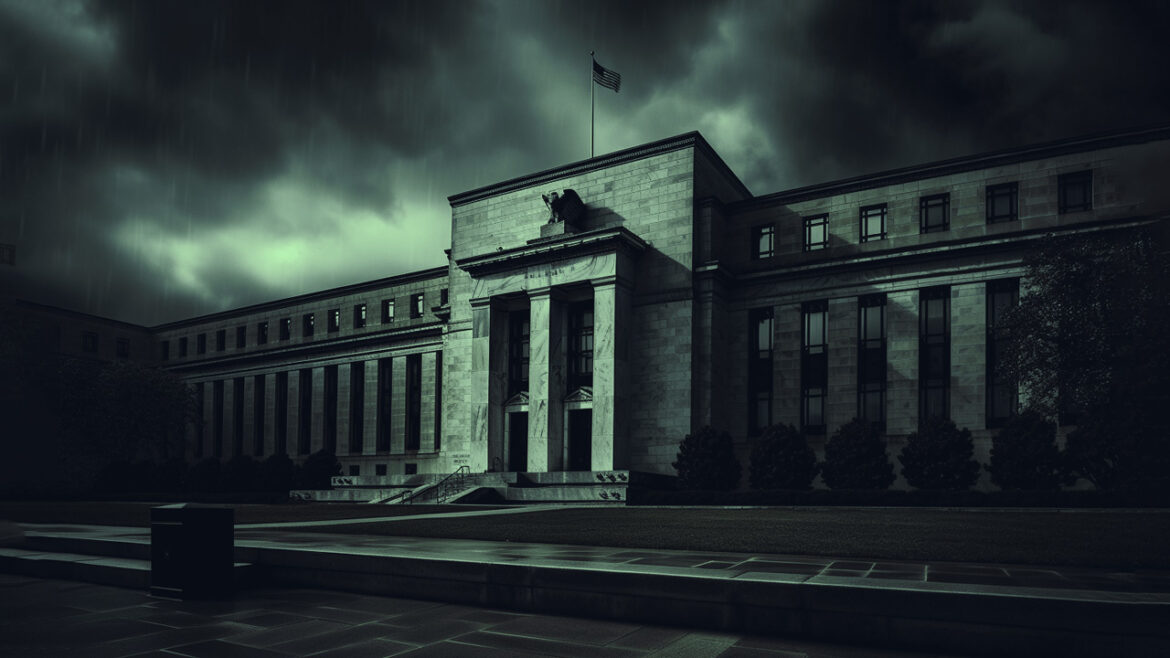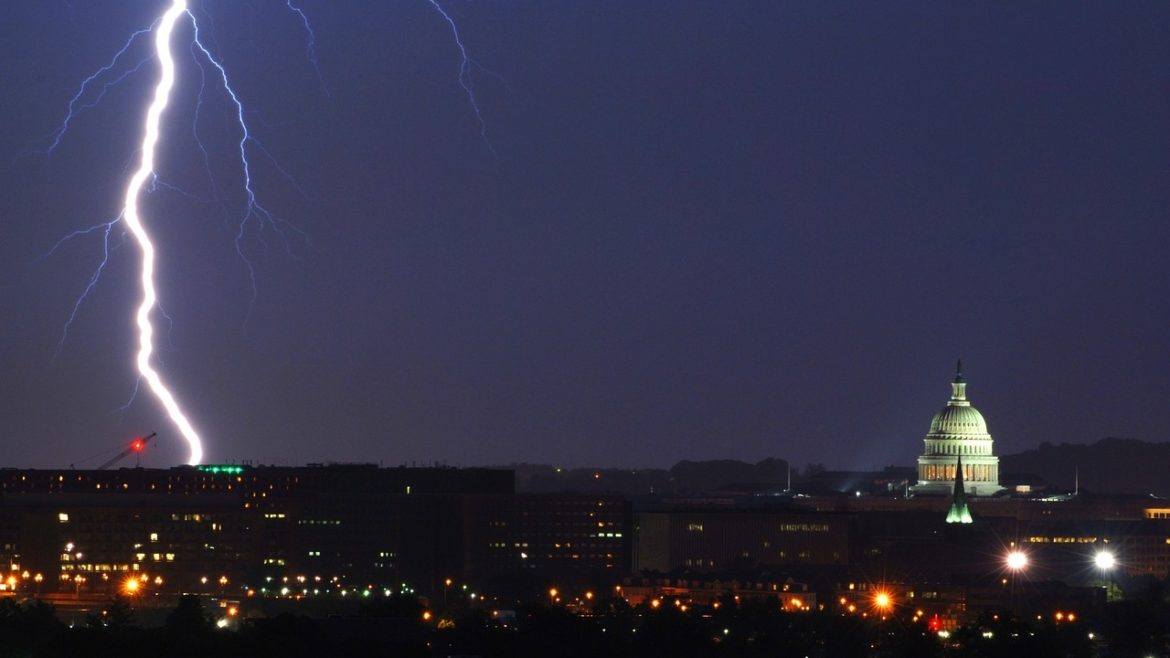Gold has all the potential to go unprecedentedly high. But silver will be gold on
Site:
Precious metals news
 Ron Paul: Call It Foreign Aid or Corporate Welfare — It's Still Money Out of Our Pockets
Ron Paul: Call It Foreign Aid or Corporate Welfare — It's Still Money Out of Our PocketsNovember 7, 2023
President Joe Biden is selling the latest proposal to send military aid to Israel and Ukraine as an economic stimulus plan. But this notion that spending money for somebody else's war somehow boosts the American economy is rooted in a pervasive economic fallacy.When you boil it all down, Biden is basically saying that the spending isn't really foreign aid. It's corporate welfare.Ron Paul asks the operative question: should that make us feel better?
The Federal Reserve operates under a dual mandate from Congress — to achieve maximum employment and stable prices. In a recent podcast, Peter Schiff explained why the Fed won't achieve either.
China, the world's top gold producer, has been actively buying gold internationally, with its central bank purchasing 181 tons out of the global central bank total of 800 tons in the first nine months of 2023. This surge in gold reserves, now at 2,113 tons, reflects China's strategy to diversify away from the dollar amidst financial and geopolitical uncertainties, and could also be a hedge against potential sanctions similar to those faced by Russia and Iran. While transparency is limited, this trend is part of China's broader move to reduce dollar dependency and possibly strengthen its own currency.
In Q3 2023, central banks worldwide purchased 337 tons of gold, marking a significant investment in the precious metal, as reported by the World Gold Council. This activity underscores a trend of consistent high demand, with implications for a considerable total gold accumulation by the end of the year. Central banks' strategy reflects a diversification effort and a hedge against volatility, indicating the value placed on gold in the current economic climate.
 Hedge Funds Highest-Ever Treasury Short Positioning into Last Week Was “Accident Waiting to Happen"
Hedge Funds Highest-Ever Treasury Short Positioning into Last Week Was “Accident Waiting to Happen"Nov 6, 2023 - 10:48:05 PST
Hedge funds' record short positions in Treasury futures triggered a cascade of events leading to an abrupt reversal in yields. The Treasury market experienced volatile shifts, partly fueled by a popular but risky leveraged trade known as the basis trade. These dynamics, amid regulatory scrutiny, have raised concerns over financial stability and prompted proposed reforms targeting hedge fund activities in the Treasury market.
The U.S. is witnessing the dire consequences of a soaring $33 trillion national debt, with the government forced to issue more Treasury securities than the market can absorb, driving up interest rates. This hike in borrowing costs impacts consumers and businesses, adding stress to the economy. With the deficit reaching $2 trillion in fiscal 2023 and a startling Treasury announcement to borrow $1 trillion in just one quarter, the pressure on financial markets is intensifying, contributing to a downturn in stocks. Partisan politics has hindered any real solutions, leaving the nation with no credible plan to manage the debt as it spirals out of contro
Nov 6, 2023 - 07:58:19 PST
Inflation has significantly increased mortgage rates by 174% under Biden's tenure, exacerbating the affordability crisis in housing as the tilt effect causes a heavier financial burden early in the mortgage period. Additionally, the 10-year Treasury yield has soared by 402%, complicating the refinancing of the U.S.'s substantial debt. Despite these challenges, record call volume in TLT (iShares 20+ Year Treasury Bond ETF) was observed on Friday, signaling a notable event in the market.
China is likely facing deflation again as October's consumer prices dropped, with a continuous decline in producer prices for over a year. This persistent price weakness suggests a faltering economic recovery and may prompt the central bank to cut reserve requirements to bolster the economy. Despite government efforts to stimulate trade and imports, economic indicators point towards a deepening downturn.
China has reduced its U.S. Treasury holdings to the lowest level in 14 years, fueling speculation about its intentions and contributing to a potential bond rout in the U.S. Some suggest this sell-off is to support the yuan as it faces capital flight and hits its lowest value against the dollar since 2007. Analysts see China's actions, including possible intervention by state banks, as a defense mechanism for the yuan, amidst a broader economic slowdown and decreasing foreign reserves. This trend raises concerns for U.S. bond yields and poses a new challenge for global financial stability.
The U.S. is facing a significant Treasury bond crisis, with yields soaring to levels not seen since the global financial crisis, raising alarms over the country's ability to attract enough buyers for its massive debt issuance. This trend signals a deepening concern about the sustainability of the U.S. fiscal policy, with a budget deficit ballooning to 8% of GDP and no political will to curb spending. Key foreign investors are pulling back, and while domestic buyers are stepping in, the shift may not be enough to stabilize the market. This financial turbulence underscores the pressing need for a reassessment of U.S. debt dynamics.
Nov 6, 2023 - 05:29:21 PST
The price of a currency, crucial in the global economy, is shaped by supply and demand dynamics. Central banks impact short-term interest rates, but the underlying "natural rate of interest" reflects the equilibrium between savings and investment, keeping inflation stable. Over the last 30 years, this natural rate for currencies has fallen, largely due to slower economic growth affecting investment demand.
Nov 6, 2023 - 05:21:23 PST
The global diesel and jet fuel shortage may lead to economic trimming of non-essential sectors and could cause central governments, especially those with large pension obligations, to fail. Political stalemates, like the ones in the U.S., could hasten such collapses, possibly ending federal programs and leaving states to manage independently.
A former White House economist suggests that BRICS nations, with their growing influence and control over global precious metals markets, could threaten the US dollar's supremacy in global trade. Despite the skepticism of some experts, the BRICS' increased economic clout, especially with new members like Saudi Arabia, could chip away at the dollar's dominance.
Home purchase deal cancellations in the U.S. hit a nearly one-year peak at 16.3% in September, driven by rising mortgage rates. According to Redfin, around 53,000 contracts were called off, marking the highest fallout since mortgage rates topped 7% in October 2022. The trend is particularly pronounced in former pandemic hotspots, with some Florida regions experiencing over 20% cancellation rates as mortgage rates approach 8%.
Investors expect rising long-term borrowing costs, pressuring government finances and limiting their crisis response. With interest rates set to stay high, government bond yields have climbed, suggesting increased interest payments that could reach $1.5tn for G7 countries by 2026. Central banks are shifting from quantitative easing to tightening, and with hefty government debt refinancing on the horizon, especially in the US, debt servicing costs are set to surge.
 73% Of Americans Say “Things Are Going Badly” in the United States, a New Record High: Yougov Poll
73% Of Americans Say “Things Are Going Badly” in the United States, a New Record High: Yougov PollNov 6, 2023 - 04:59:11 PST
A CBS News-YouGov poll shows a staggering 79% of Americans think their government is not in control, and a bleak 73% of likely voters are pessimistic about the nation's trajectory ahead of the midterms.
 TEXAS SHALE OIL INDUSTRY HIT THE RED QUEEN SYNDROME: The Tremendous Efficiency Gains Are An Illusion
TEXAS SHALE OIL INDUSTRY HIT THE RED QUEEN SYNDROME: The Tremendous Efficiency Gains Are An IllusionNovember 6, 2023
While the market is celebrating record production from the Great U.S. Shale Oil Industry, the tremendous efficiency gains are nothing more than a mere ILLUSION. In reality, the Texas Shale Oil Industry has hit the RED QUEEN SYNDROME...
There is a $33.7 trillion elephant in the living room.I'm referring to the massive national debt.It's pretty amazing that we have this massive animal sitting right in the middle of everything and most people are just walking around it as if it isn't there.
Is war and military spending really good for the economy?A lot of people seem to think so. In fact, President Joe Biden is selling the latest proposal to send military aid to Israel and Ukraine as an economic stimulus plan. But this notion that spending money for war somehow boosts the economy is rooted in a pervasive economic fallacy.
Join Mike Maloney and Alan Hibbard for their weekly wrap-up on gold and silver markets.








